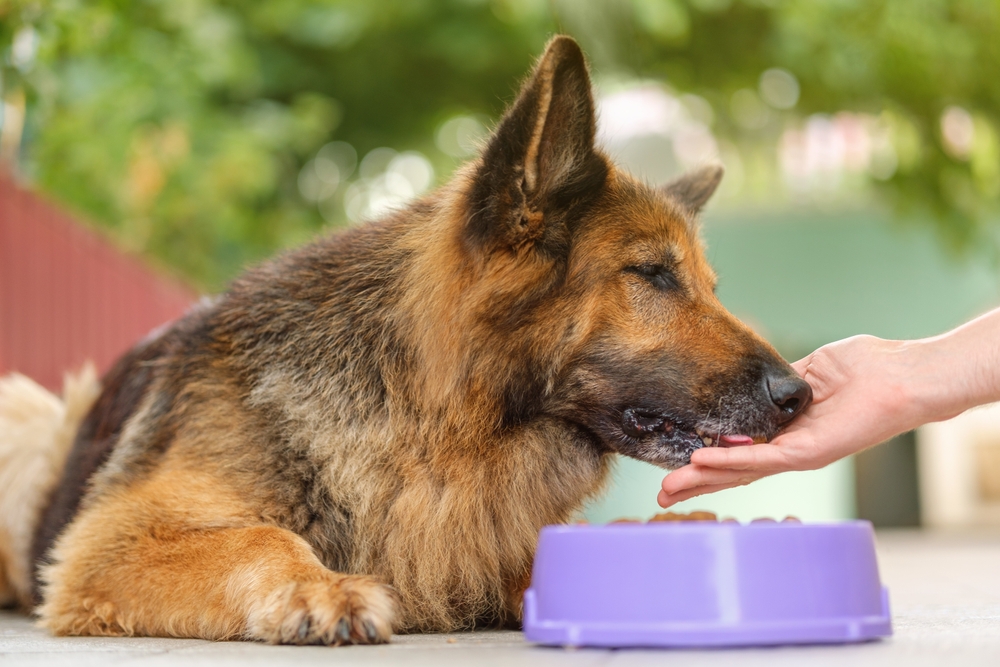
Food-related issues are increasingly common in pets, and identifying the cause of your furry friend’s discomfort can be a challenge. While food allergies and food sensitivities are often used interchangeably, they are not the same. Knowing the difference is key to helping your pet feel their best.
Food Allergies vs. Food Sensitivities: What’s the Difference?
Food allergies in pets involve a response from the immune system. When your pet eats something they are allergic to, such as chicken, beef, or dairy, their immune system reacts as if it is a threat. This reaction can lead to symptoms like hives, itching, or even gastrointestinal distress.
Food sensitivities (or intolerances), on the other hand, are typically non-immune reactions. These might stem from an inability to properly digest a particular ingredient or additive. While the symptoms can be similar, sensitivities usually present more subtly and build up over time, rather than appearing suddenly like an allergy might.
Signs Your Pet May Have a Food Sensitivity
Pets can’t tell us when something is wrong, but their bodies often do. Common signs of food sensitivities include:
• Chronic itching or licking
• Frequent ear infections
• Gastrointestinal issues such as gas, bloating, diarrhea, or vomiting
• Skin problems, including redness, rashes, or dry patches
• Frequent bowel movements or loose stools
• Behavioral changes, like irritability or restlessness
If these symptoms persist or return frequently, food sensitivity could be the root cause.
Dietary Solutions for Pet Food Sensitivities
Managing food sensitivities starts with identifying the culprit. This process can take time and requires a strategic approach, often with the help of your veterinarian. One of the most reliable methods is an elimination diet. This involves feeding your pet a limited-ingredient or novel protein diet for 8 to 12 weeks. During this time, you avoid any other foods or treats. If symptoms improve, ingredients can be slowly reintroduced one at a time to identify the specific trigger.
Hypoallergenic diets are another option. These diets use hydrolyzed proteins, which are broken down into smaller components that are less likely to trigger an immune response. They may also include ingredients your pet has never encountered before. These diets are typically available by prescription and are ideal for pets with more severe reactions. At True Animal Vet, we often recommend Royal Canin Veterinary Diet Hydrolyzed Protein, Purina Pro Plan Veterinary Diets HA (Hydrolyzed), or Hill’s Prescription Diet z/d (Food Sensitivities).
For pets with mild sensitivities, limited ingredient diets (LID) may be helpful. These commercial diets contain fewer ingredients to reduce the chance of a reaction and are readily available without a prescription. They can be a good middle-ground option for pets who don’t require a prescription formula. At True Animal Vet, we often recommend Royal Canin Veterinary Diet Selected Protein as a limited ingredient diet.
It’s also important to avoid common triggers. The most frequent culprits include beef, chicken, dairy, wheat, soy, and corn. Carefully reading ingredient labels on pet food and treats can help you steer clear of these ingredients and reduce the risk of symptoms returning.
Finally, nutritional counseling with a veterinarian ensures your pet receives a balanced, safe, and effective diet plan—especially if they have multiple sensitivities or underlying health issues. If commercial diets don’t work or if your pet has multiple sensitivities, your vet can help you develop a balanced homemade diet tailored to your pet’s specific needs.
Concerned About Food Sensitivities in Your Pet?
Caring for a pet with food sensitivities requires patience, but with the right approach, your pet can live a happy, symptom-free life. During your pet’s regular wellness exam, we can evaluate recurring symptoms like itchy skin or loose stools, which are often early signs of food sensitivity. The earlier you spot the signs and address the issue, the better your pet will feel in the long run.
If your pet is showing signs of food sensitivities, schedule a wellness exam at True Animal Vet. We’ll work with you to find the source of your pet’s discomfort and create a nutrition plan that supports their overall health and happiness. Contact our office in The Woodlands, Texas (77381). Call (281) 867-5968, text (281) 916-3282, or visit Www.trueanimalvet.com to book your appointment today!










